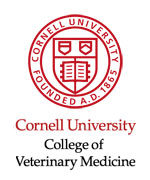KAZA TFCA
Animal Health Sub-Working Group

2018 AHSWG meeting, Maun, Botswana
The KAZA TFCA (https://www.kavangozambezi.org/) Animal Health Sub-Working Group (AHSWG) aims to address transboundary animal health and disease issues through a cross-sectoral, integrated approach and speaks directly to objective (j) as listed in the KAZA Treaty (2011) "to promote and facilitate the harmonization of relevant legislation, policies and approaches in the area of transboundary animal disease prevention, surveillance and control within the KAZA TFCA." The AHSWG, under the Conservation WG, has remained dormant for many years. However, in February 2018 the KAZA TFCA Joint Management Committee (JMC) noted its revival so that animal health and veterinary challenges across the TFCA could continue to be addressed through a cross-sectoral, integrated approach.
Background
The KAZA TFCA is a vast landscape that encompasses multiple land use areas that consist of protected areas in the form of national parks, wildlife/game management areas, forest reserves, and communal areas. More than 70% of the land in the TFCA is inhabited by communities that live in close proximity to protected areas, expanding the interface among wildlife, livestock and people. Management of animal diseases (including zoonoses – diseases transmissible between animals and people) within the TFCA remains a concern for public health, economic and conservation reasons. Diseases such as bovine tuberculosis, rabies, brucellosis, and anthrax impact rural development by decreasing livestock productivity, causing wildlife and livestock morbidity and mortality, and affecting the health and wellbeing of people. Foot and mouth disease continues to impact rural livestock producers and livelihoods, with fence-based control measures having major impacts on migratory wildlife. It is within this broad context of environmental and social impacts that animal health challenges need to be addressed. |











